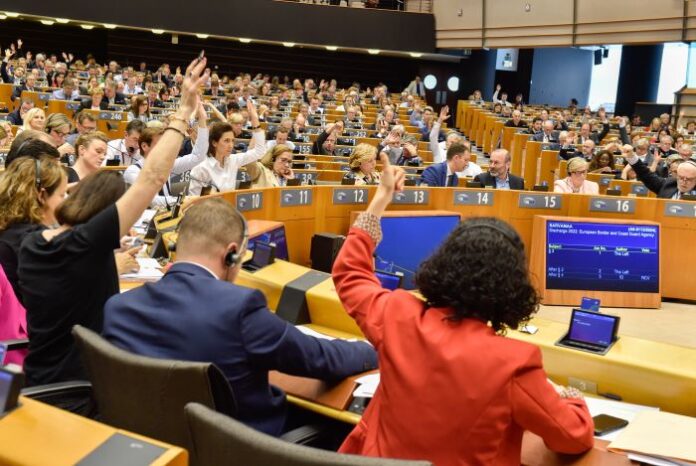MEPs urge the Council to add sexual and reproductive healthcare and the right to a safe and legal abortion to the EU Charter of Fundamental Rights.
France became the first country to enshrine the right to abortion in its constitution on 4 March 2024. Healthcare, including sexual and reproductive health, falls under national powers. Changing the EU Charter of Fundamental Rights to include abortion would require unanimous agreement from all member states.
In a resolution adopted on Thursday with 336 votes in favour, 163 against and 39 abstentions, MEPs want to enshrine the right to abortion in the EU Charter of Fundamental Rights – a demand they have made several times. MEPs condemn the backsliding on women’s rights and all attempts to restrict or remove existing protections for sexual and reproductive health and rights (SRHR) and gender equality taking place globally, including in the EU member states.
They want Article 3 of the Charter to be amended to state that “everyone has the right to bodily autonomy, to free, informed, full and universal access to SRHR, and to all related healthcare services without discrimination, including access to safe and legal abortion”.
The text urges member states to fully decriminalise abortion in line with the 2022 WHO guidelines, and to remove and combat obstacles to abortion, calling on Poland and Malta to repeal their laws and other measures that ban and restrict it. MEPs condemn the fact that, in some member states, abortion is being denied by medical practitioners, and in some cases by entire medical institutions, on the basis of a ‘conscience’ clause, often in situations where any delay will endanger the patient’s life or health.
Education and high-quality care
Abortion methods and procedures should be an obligatory part of the curriculum for doctors and medical students, Parliament says. Member states should ensure access to the full range of SRHR services including comprehensive and age-appropriate sexuality and relationship education. Accessible, safe and free contraceptive methods and supplies, and family planning counselling, should be made available, with special attention paid to reaching vulnerable groups. Women in poverty are disproportionately affected by legal, financial, social and practical barriers and restrictions to abortion, MEPs say, calling on member states to remove these barriers.
Stop EU funding to anti-choice groups
MEPs are concerned about the significant surge in funding for anti-gender and anti-choice groups around the world, including in the EU. They call on the Commission to ensure that organisations working against gender equality and women’s rights, including reproductive rights, do not receive EU funding. Member states and local governments must increase their spending on programmes and subsidies to healthcare and family planning services.

